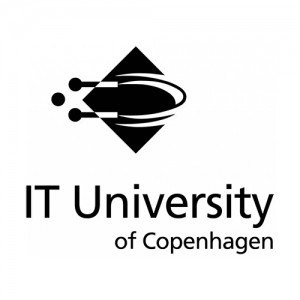Photos of university / #aarhus_university
Sustainable Heritage Management at Aarhus University offers a comprehensive interdisciplinary program designed to equip students with the knowledge and skills necessary to preserve cultural heritage in a sustainable way. This programme combines insights from archaeology, history, conservation science, environmental studies, and policy analysis to prepare graduates for careers in heritage preservation, management, and consultancy. Students will explore various aspects of heritage assets, including architectural sites, archaeological remains, museums, and intangible heritage, and learn how to develop strategies that balance preservation with social, economic, and environmental sustainability. The curriculum emphasizes practical experience through fieldwork, case studies, and collaborations with heritage organizations, ensuring that graduates are well-prepared to address contemporary challenges in heritage management. Participants will gain a thorough understanding of legal and ethical considerations in heritage conservation, risk assessment, sustainable tourism, and community involvement. The program also covers digital technologies and innovative approaches for heritage documentation and interpretation. By integrating theoretical foundations with practical applications, the Sustainable Heritage Management programme at Aarhus University aims to foster responsible stewardship of cultural resources to ensure their longevity for future generations. Graduates will be prepared for diverse roles in governmental agencies, international organizations, cultural institutions, and private consulting firms working towards sustainable and inclusive heritage practices globally.
The Sustainable Heritage Management program at Aarhus University offers students a comprehensive and interdisciplinary education focused on the preservation, conservation, and sustainable use of cultural heritage. This program is designed to equip students with the necessary knowledge, skills, and practical experience to address the complex challenges faced by heritage sites, museums, cultural institutions, and communities in today’s rapidly changing world. Throughout the program, students will explore the theoretical foundations of heritage management, including cultural, social, and environmental dimensions, while also gaining hands-on experience in conservation techniques, policy development, and stakeholder engagement. The curriculum emphasizes sustainability principles and their application in heritage contexts, encouraging innovative approaches to balancing preservation with contemporary societal needs. Students will engage with a wide range of heritage types, such as historical buildings, archaeological sites, landscapes, and intangible cultural heritage, considering their cultural significance and the importance of community involvement. The program also fosters critical skills in project management, communication, and interdisciplinary collaboration, preparing graduates for careers in heritage organizations, public authorities, NGOs, and private sector initiatives. Additionally, students have opportunities for practical internships, fieldwork, and international exchanges, providing real-world insights into heritage management practices across different cultural and geographical settings. Upon completion, graduates will be capable of designing and implementing sustainable strategies for heritage conservation, advising policymakers, and promoting awareness of the value of cultural heritage for future generations. The Sustainable Heritage Management program at Aarhus University combines academic rigour with practical relevance, ensuring students are well-prepared to contribute meaningfully to the preservation and sustainable development of cultural heritage worldwide.
Program requirements for the MSc in Sustainable Heritage Management at Aarhus University typically include a relevant bachelor's degree, such as in archaeology, history, cultural studies, or a related field. Applicants must demonstrate proficiency in English, usually through tests like TOEFL or IELTS, meeting the university's minimum score requirements. Additionally, candidates are often expected to submit a motivational letter explaining their interest in sustainable heritage management and their relevant experience or skills. Relevant work experience or internships in heritage conservation, archaeology, or related disciplines may be advantageous but are not always mandatory. The selection process emphasizes academic performance, motivation, and relevant professional background. Applicants should prepare their transcripts, degree certificates, and references for submission. The program encourages applicants with a strong interest in sustainable practices within heritage preservation and management, aiming to develop expertise in balancing cultural heritage conservation with sustainable development goals. Moreover, some programs may require a curriculum vitae (CV) highlighting prior academic and professional experiences. In the case of international applicants, additional documentation may be necessary to verify qualifications and language proficiency. It is advisable to check the specific admission requirements and deadlines posted on the Aarhus University official website for the most accurate and current information. The program's interdisciplinary approach demands active engagement, analytical skills, and a commitment to sustainable development principles, ensuring graduates are well-equipped to contribute effectively to heritage management in diverse contexts.
The Financing studies of the Sustainable Heritage Management program at Aarhus University encompass a variety of funding options available to both domestic and international students. The program provides detailed guidance on scholarships, grants, and financial aid opportunities offered by the university and external organizations. International students are encouraged to explore various scholarship schemes, including Danish government scholarships and Erasmus+ funding, which can significantly offset tuition fees and living costs. Aarhus University also offers specific scholarships for students from certain countries and for students demonstrating exceptional academic achievement. Additionally, partial-tuition scholarships are awarded based on merit and need, encouraging diversity within the student body. Apart from scholarships, students can seek financial support through student loans available from government agencies, which typically require students to be enrolled full-time and to meet certain academic progress criteria. The university's financial aid office provides comprehensive counseling to help students identify suitable funding sources and navigate application processes. Working opportunities on campus are available for eligible students, allowing them to earn supplementary income while studying, subject to visa restrictions for international students. The program's curriculum emphasizes sustainable development, which is aligned with the broader objectives of responsible financial planning and resource management. The cost of living in Aarhus is relatively affordable compared to other European cities, and students are advised to budget accordingly. Students are also encouraged to plan their finances carefully, considering expenses such as accommodation, transportation, materials, and health insurance. Overall, the program's financing options are designed to support students in their academic pursuits while promoting financial sustainability and accessibility.
Sustainable Heritage Management at Aarhus University is a multidisciplinary program designed to equip students with the skills and knowledge necessary to preserve and manage cultural heritage in a sustainable way. The program focuses on integrating heritage conservation with environmental, social, and economic sustainability principles. Students explore various aspects of heritage management, including archaeology, architecture, urban planning, preservation techniques, and policy development. The curriculum emphasizes the importance of balancing historical preservation with contemporary needs such as urban development and tourism. Students learn through a combination of theoretical coursework, case studies, and practical projects that often involve collaboration with heritage organizations and local communities. The program aims to develop students' critical thinking, project management skills, and intercultural communication abilities. Graduates of Sustainable Heritage Management are prepared for careers in heritage conservation agencies, cultural resource management firms, governmental organizations, and international heritage preservation initiatives. The program also encourages research and innovation in sustainable preservation practices, utilizing modern technology such as Geographic Information Systems (GIS), 3D scanning, and digital documentation methods. Students benefit from Aarhus University's strong focus on sustainability and its integration with cultural heritage, fostering a holistic approach to preserving the past while supporting sustainable development for the future. The program typically spans two years for a master's degree, with opportunities for internships and international exchange experiences. Overall, the program aims to create professionals who are capable of addressing the complex challenges of heritage management in a rapidly changing world, ensuring that cultural heritage remains a vital part of societal identity and sustainability.





